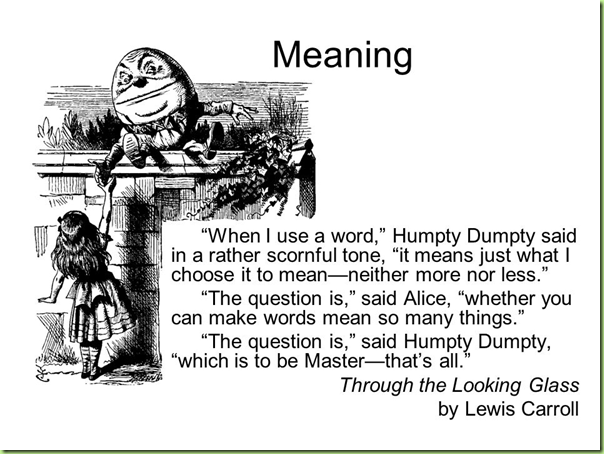First, courtesy of Mike Miles, a prediction from a visionary of a century ago:

Brave New World predicted several things: genetic engineering, the end of human parturition, a habit-forming pleasure drug, the virtual abolition of emotion, a rigidly stratified world society, a world government, and more. Huxley’s vision was dystopic: that of a kind of Hell, in which all that makes us human has been removed from us in the name of peace and stability. We should be thankful that his predictions have not yet come to pass in their entirety. Yet they fill me with a great foreboding.
I worked with a couple of Huxley’s ideas in my Futanari Saga. I’m not done with them. However, don’t be on tenterhooks for the next installment; these stories are getting harder and harder to write. I’ve never been terribly fond of reading horror; writing it was never high on my list of ambitions.
One thing that distinguishes Huxley’s vision of a genetically and pharmacologically pacified world from our current milieu is the near-universal contentment of its denizens. That comes across in several ways. The great majority of its denizens live untroubled lives. They know their place and they’re happy to be in it. That happiness is buttressed by a pleasure-focused set of institutions and – of course – by Huxley’s drug soma, which is available to all. Dissidents such as Bernard Marx and Helmholtz Watson are segregated off to island communities where they can’t trouble the greater number. John – “the Savage” – is set loose in the larger society as a kind of experiment. To put it mildly, it doesn’t turn out well for him.
I was not yet twelve years old when I first read Brave New World. I didn’t quite “get the point,” though it vaguely troubled my rebellious preadolescent soul. But then, quite a number of “older and wiser heads” have never gotten it either…and perhaps we should be grateful for that.
I think it would be inaccurate to say that individuals in Huxley’s envisioned dystopia are addicted to soma. They certainly value it highly, but the drug as proposed appears not to have the most important property of genuinely addictive substances: a terrible and terrifying withdrawal procedure. Yet they are addicts: to peace, to comfort, to stability, and to the absence of any need to think or feel. When Bernard Marx’s thoughts veer toward the possible superiority of an emotion-laden world filled with choices individuals must make for their own survival and flourishing, he becomes an isolate. He can no longer relate to co-protagonist Lenina Crowne, for example. And of course, that openness to a wildly different vision of life and society ultimately gets him sent to an island, which World Controller Mustapha Mond characterizes thus:
‘One would think he was going to have his throat cut,’ said the Controller, as the door closed. ‘Whereas, if he had the smallest sense, he’d understand that his punishment is really a reward. He’s being sent to an island. That’s to say, he’s being sent to a place where he’ll meet the most interesting set of men and women to be found anywhere in the world. All the people who, for one reason or another, have got too self-consciously individual to fit into community-life. All the people who aren’t satisfied with orthodoxy, who’ve got independent ideas of their own. Every one, in a word, who’s any one. I almost envy you, Mr. Watson.’
Helmholtz laughed. ‘Then why aren’t you on an island yourself?’
‘Because, finally, I preferred this,’ the Controller answered. ‘I was given the choice: to be sent to an island, where I could have got on with my pure science, or to be taken on to the Controllers’ Council with the prospect of succeeding in due course to an actual Controllership. I chose this and let the science go.’ After a little silence, ‘Sometimes,’ he added, ‘I rather regret the science. Happiness is a hard master-particularly other people’s happiness. A much harder master, if one isn’t conditioned to accept it unquestioningly, than truth.’
The powers behind Huxley’s curtain, the World Controllers and their advisors, are in much the same position as C. M. Kornbluth’s “normal men” in his classic novella The Marching Morons. The Controllers have voluntarily enslaved themselves to the happiness of millions of inferiors: quasi-humans designed and fully conditioned to accept bondage without being fully aware of their chains. But note: when someone out of the past gives Kornbluth’s “normal men” the key to escaping their comparable self-enslavement, they take it eagerly. Yes, it means the painful slaughter of the greater part of the population of the world, but so what?
What sort of emotional relationship to one’s inferiors does that decision reveal? Is it more or less plausible than Huxley’s vision of a benevolent unseen oligarchy, self-enslaved to the well-being and happiness of far lesser humans?
There is a group that aspires to the degree of all-encompassing power Huxley attributed to his Controllers and Orwell attributed to his Inner Party. They do regard the rest of us as their inferiors, fit solely for serving them. They intend our subjugation. Indeed, they intend to do away with a large fraction of us – “for our own good,” of course. What emotional relationship would you say they have with us?
Got it in one, didn’t you, Gentle Reader?
They strive to present themselves as benevolent. There may even be, among their number, some genuinely benevolent souls. Yet they are united in their belief that they are entitled to rule over the rest of us, by dint of their moral and intellectual superiority. And they will brook no dissent from us the hoi polloi.
Daniel Webster once said:
“There are men, in all ages, who mean to exercise power usefully; but who mean to exercise it. They mean to govern well; but they mean to govern. They promise to be good masters; but they mean to be masters.”
Some time ago, I wrote that “Power is a drug that doesn’t sate.” Today, I feel that that formulation isn’t perfectly exact. Power is the overarching aim of the abovementioned persons, but it is not power per se to which they’re addicted.
Dare to challenge them, demand that their power be limited or nullified, and their “goodness,” whether real or pretended, will dissolve like the morning mists. Their reaction will not be a more-in-sorrow-than-in-anger chastisement and correction, but undisguised and violent hatred. Our exercise of lese majeste will reveal their true nature, for they are addicted to their self-conception as our betters, and they demand that we accept it without question.
As I’ve said on other occasions, I write these pieces extemporaneously. I don’t outline them first. I don’t make notes of the high points I intend to hit. If they sometimes seem murky or jumbled, you have the explanation.
Huxley’s vision of a peaceful society filled with contented serfs is at wild variance from Orwell’s bleak dystopia. Yet it would be a far easier “sell” today. For that reason I fear that the would-be totalitarians will eventually grasp its usefulness, at least as a veneer with which to coat and disguise their ultimate aims. When they say “by any means necessary,” they mean it.
Whether or not they mean to be good masters, they mean to be masters. Though among them there may be individuals who regard us with the kind of affection one feels for a pet, they do not love us. They cannot, for they do not regard us as their equals; their addiction forbids it. And they will not enslave themselves to our happiness.
Have a nice day.



.jpg)
















